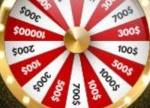Hungary May Reintroduce Slot Machines
Posted: May 18, 2013
Updated: October 4, 2017
Slot machines could be the next big business to operate as a monopoly in Hungary

When taxes on Hungarian slot machines were raised drastically in 2011, their numbers shrank from 23,000 to 4,000. Then, in October 2012 the government banned these gaming devices outside of casinos by altering Hungarian gambling laws virtually overnight.
This has left slots enthusiasts with very few options, as the country’s three casinos have only some 250 machines. Various legal and illegal alternatives have popped up as a result.
Some pubs have transformed their machines into internet terminals that can be switched to a video slot mode by staff, with winnings being paid from the cash register. Many Hungarian players also travel to neighboring Slovakia from the country’s from adjacent regions, to spin the reels in Slovak casinos.
These “solutions” still leave most of the demand for slots unfulfilled.
According to industry rumors, however, the Hungarian government may be considering a “Norwegian solution” when it comes to slot machines. Norway banned the country’s highly popular one-armed bandits in 2007 and players had to do without slots for two years.
Having changed the laws to prohibit private ownership of such machines, the Norwegian government gave Norsk Tipping, the state-owned gambling monopoly, exclusive rights to operate such devices. At the same time they also changed the admissible technology, making interactive video terminals the only available form of land-based slots. Norwegian players must use special cards connected to their bank accounts, with strict daily and monthly caps on the amount wagered.
It wouldn’t come as a surprise if Hungary were to follow a similar model to tap into those revenues that are now going abroad or flowing into illegal channels. Such a change would be especially likely if concession and tax revenues from planned online casinos and online poker sites in Hungary do not meet prior expectations.
The danger of that happening is quite real, since most international operators consider the entry fee to be too high, so interest in setting up Hungarian internet casinos could prove to be very mild.
The slots trade on the other hand is a tried and tested way of making money. Moreover, granting the actual operation of the machines to local businesses would also create a lucrative opportunity for shops, pubs, restaurants and other establishments seeking to boost traffic by appealing to gambling patrons.
Considering that the Hungarian government is no stranger to creating monopolies and then reallocating operating rights to friends, family and political supporters, such rumors can not be dismissed out of hand. The possible political repercussions, however, make it unlikely that such a move would be considered seriously until after the general elections of 2014. Players seeking legal ways to try the slots must therefore visit casinos or travel abroad for at least another year or two.












